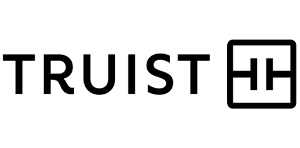NCHC Update
We’re looking for an Americorps VISTA to join our communications team! Effective communications are critical to engaging, empowering, and mobilizing communities to implement successful affordable housing policies. The VISTA will play a key role in strengthening the Coalition’s communications and events to more effectively engage legislators, community organizers, and impacted individuals on housing issues. This is a great entry-level opportunity for anyone interested in nonprofit communications. Learn more on our jobs board and apply today!
Federal Updates
- Thom Tillis and Ted Budd signed onto the Affordable Housing Credit Improvement Act bill in the Senate over the weekend and Rep. Greg Murphy who is on the Ways & Means Committee signed onto the companion bill in the House. This is fantastic news! The House bill now has a total of 134 co-sponsors and the Senate bill has 25 co-sponsors.
- A bipartisan piece of legislation that aims to expand and strengthen our country’s primary tool for developing and preserving affordable housing – LIHTC. It has been introduced in the past three congresses, and has earned bipartisan support each time. Pieces of the AHCIA have also been implemented separately in years past such as the establishment of a minimum 4 percent Housing Credit Rate – in 2020, and in 2018 the 12.5 percent Housing Credit Allocation was increased for four years – expiring in 2021 – and income averaging was added, which provides flexibility within LIHTC developments to serve a broader range of low-income tenants.
Key Differences between the 2021 version of the AHCIA and the 2023 version include:
- Clarifies the Basis Boost for properties serving extremely low income households (section 307) stating that properties will receive a 50 percent bassist boost if 20 percent of their units are reserved from extremely-low-income households. This version clarifies the units have to be both income -and rent-restricted.
- The 2023 version also uses the unit fraction to determine the amount of Credit a project is eligible to receive.
- New provision in the 2023 version includes a provision that additional steps should be taken to increase the transparency of the program and sharing of data.
- Clarifies the protections for Housing Credit residents that are covered by the Violence Against Women Act (section 205)
- House Republicans released their draft Transportation, Housing, and Urban Development (THUD) spending bill last week. The bill provides a modest increase to HUD’s currently enacted spending level and would fund most HUD rental assistance programs. However, this proposed allocation is still short of what is needed to maintain current programs. Section 202 Housing for the Elderly and Section 811 Housing for Persons with disabilities would face cuts and the HOME Investment Partnership Program would be cut by more than half. The Choice Neighborhoods Initiative, Housing Mobility Services, Incremental Vouchers, and Family Unification Program would be zeroed out. It’s unclear if the entire House will vote on the bill before a month-long recess in August. The Senate is expected to release their budget in the next few weeks. Due to the terms agreed upon in the debt ceiling negotiations, their bill is likely to include cuts to HUD funding too. For more details, check out NLIHC’s analysis.
State Updates
- Ethics complaint filed against state representative from Mecklenburg County | ActionNC has filed an ethics complaint regarding Rep. John Bradford’s potential conflict of interest with HB 551. The bill would ban source of income discrimination and require that service animals go through more extensive screening. Bradford created Petscreening, a service animal screening company.
- Check out our piece from last week that explores the impact a dedicated revenue source would have on the state Housing Trust Fund. A deeper brief that includes our methodology and additional details with our partner BTC will be coming out at the end of the month.
State Legislative Updates
- A state budget isn’t expected for another 2-3 weeks. Most committees have slowed down, and many are taking a break. This doesn’t mean you can’t reach out to your representatives, remind them of the importance of investing in housing! Especially as our state continues to be lauded as a great state for business – remind them that economic development and housing go hand in hand. Share our blog with them, share the county profiles, the out of reach report, as well as any local community data you have.
Local Updates
- Variety of Rehabilitations Capture Annual Journal of Tax Credits HTC Awards | Novogradac | Self-Help Ventures Fund’s Mill House at the 45-acre Revolution Mill in Greensboro was recently recognized by the Novogradac Annual Journal of Tax Credits HTC Awards. The rehab project was awarded “HTC Nonresidential Development that Best Exemplifies Major Community Impact.” Self-Help purchased the property out of foreclosure in 2012 and has transformed it into a campus with office, restaurant, and 33 apartments, 20% of which are income-restricted.
- Orange County Habitat for Humanity Purchases Plots in Rogers Road Area – Chapelboro.com | Orange County Habitat for Humanity purchased 11 acres off of Rogers Rd for the development of future affordable housing. The purchase was made possible with the help of a $5M gift received last year from philanthropist MacKenzie Scott. Orange County and 7 other NC Habitat affiliates were among the 84 Habitat affiliates nationwide that received donations from McKenzie Scott last year.
- Tenants Living on Durham’s Open Air Camp Road Organized to Avoid Eviction and Secured Their Forever Homes – INDY Week | Seven families are expected to be able to stay in their naturally affordable homes after the Eno River Association sent eviction notices to tenants last fall. The owners planned to sell the property to the NC Parks System but all seven households formed a tenants’ union and successfully advocated to stay in their homes. The tenants are now in mediation with the Eno River Association and the homes are expected to be converted to a shared-equity land trust model to maintain the affordability of the homes.
- Legal Aid NC Expands Housing Justice Services in Raleigh and Eastern North Carolina – INDY Week | Legal Aid of NC received a $450K grant from the Wells Fargo Foundation. Most of the money will go towards launching Legal Aid’s Heir Property Pro Bono Project. LANC will partner with the NC Bar Association’s Real Property Section to recruit lawyers and paralegals to assist property owners with heir property cases. $150K will be dedicated to expanding eviction defense in the City of Raleigh and Nash & Edgecombe Counties.
- A New Fund Aims to Preserve Affordable Housing in Wake County, But Even Mission-Based Landlords Struggle to Keep Rents Low – INDY Week | An article in Indy Week last week discusses the challenges affordable housing developers face in keeping rents low for tenants. Housing nonprofit CASA borrowed $7M from the newly created Wake County Affordable Housing Preservation Fund (WAHPF) last fall to purchase and preserve 41 naturally occurring affordable units at Grosvenor Gardens Apartments and raised monthly rents from $800 to $1100. CASA explains that the increase was needed to make the numbers work, and that tenants’ rents are still below Fair Market Rent. Across the country, cities are creating affordable housing preservation funds to assist low-income housing developers with quickly securing the financing needed to purchase naturally occurring affordable units and units aging out of the LIHTC program. Yet, keeping rents affordable to extremely low-income households remains a challenge for nonprofit developers.
Reports & Resources
- The Pandemic Aggravated Racial Inequalities in Housing Insecurity: What Can it Teach Us About Housing Amidst Crises? | Joint Center for Housing Studies of Harvard University
- CDBG Consolidated Plan Data Quick Guide | HUD Exchange
- Faith-Based Development Guide | Enterprise Community Partners & Wells Fargo
Events
- [webinar] Affordable Housing in America: Funding National Affordable Housing with Diane Yentel | YIMBY Action, 7/27, 4-5 p.m.
- [in-person – Asheville] Neighbors for More Neighbors WNC Kickoff Event | Mountain True, 8/10, 5-7 p.m. Wedge Brewery at Foundation
- [rescheduled webinar] Housing First | NLIHC, National Alliance to End Homelessness, and Center on Budget & Policy Priorities, 8/14, 2:30-4 p.m.
In the News
- Wave of Rental Resets to Further Deplete Affordable Housing | Wall Street Journal
- Inflation rate eases but Fed can’t conquer housing prices | POLITICO
- Foreclosure activity ticks up in the first half of 2023 | HousingWire
- In ‘warfare against renters,’ homeowners fight affordable housing push | NBC News
- Student loans: How payments pinch renters, dash dreams of homeownership | WNCT







